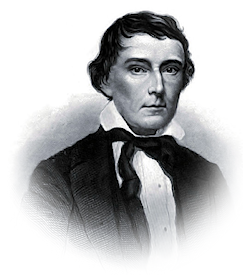Crawfordville [Ga.], April 14th, 1860.
Dear Smith, I got home last night from Hancock court and found your letter of the date I forget but the one about your correspondence with the Confederacy. I would advise you to write as requested. I do not know what the prospect for your pay will be; but he is a clever man personally. I would simply give him the news. He is not a disunionist per se as I understand him. He is not in favour of opening the African slave trade either, as I understand him. He does no good however to any cause, in my opinion. He is too violent. This I say to you. His judgment is not good. I would advise you, if you write, neither to advocate disunion or the opening of the slave trade. The people here at present I believe are as much opposed to it as they are at the North ; and I believe the Northern people could be induced to open it sooner than the Southern people. It would be useless to write on that subject at this time. I have nothing more to say ; no time rather to say more.[i]
[i] Endorsed in pencil on a blank page at the end of this letter is the following by J. Henly Smith :
“James P. Hamilton, Editor of the Southern Confederacy, published at Atlanta, Ga.,has requested me to correspond for him. As Mr. Stephens advises it, I will comply. — J. H. S.”
From Annual Report of the American Historical Association for the Year 1911.
Alexander H. Stephens would later become Vice President of the Confederated States of America.
